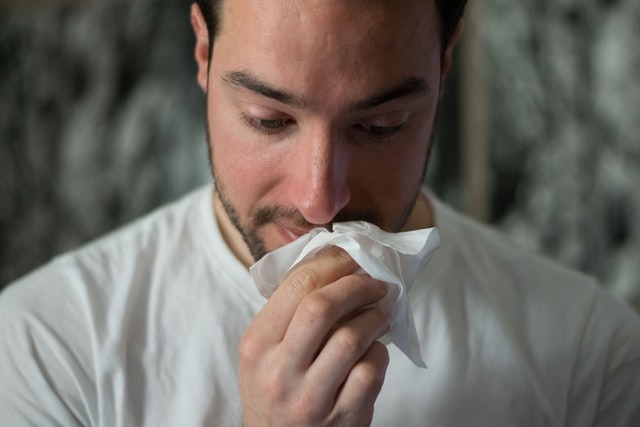
Sinus and chronic sinusitis problems affect approximately 29 million U.S. adults, or 14% of the population each year.
For many, these sinus issues occur far more frequently and with more severity during the autumn and, in particular, the winter months.
In this article, Dr. Schalch Lepe first discusses common symptoms that accompany sinus problems and then examines why sinus problems are more prevalent in winter. Finally, he offers his expert advice on how people can reduce the impact this time of year has on their sinus and airway health.
What are Sinus Problems?
While they can occur year-round, sinus problems become more prevalent during winter. Symptoms that are caused by sinus problems include:
- A runny nose or nasal drip
- Nasal congestion, or a blocked nose
- Coughing and mucous or phlegm in the nose and throat
- Headaches, swollen eyes, facial pain and pressure
- Upper teeth pain
- Reduced quality of sleep
What Causes the Sinus Problems?
Sinus problems can be caused by bacterial or fungal infections,, but most commonly, are caused by respiratory viruses. The impact winter has on the severity and frequency of viral sinus problems is a combination of how our behavior changes during winter and also the weather and atmosphere that make us more susceptible to infection.
Time Indoors and Proximity
With the colder winter months comes a greater amount of time spent indoors and in close, enclosed proximity to other people. This gives viruses that cause sinus issues a better chance of spreading from person to person, thus increasing infection rates.
Dry Air
During winter, as people warm their houses and homes to fend off the cold, the air naturally dries out. When we breathe this dry air, we also dry out our mucous membranes, our body’s natural defense systems against viral and bacterial infections. Without adequate, moist mucous membranes lining our breath passageways, the particles can move more easily into our bodies and cause infection.
Dust Mites and Allergens
Allergens, such as mold, damp wood, and dust mites, are more numerous in winter, as warm clothing comes out of the wardrobe. This can also compound the effects of closer proximity and dry air, leading to sinus infections that the body might normally fend off.
The Best and Most Effective Preventative Measures
Knowing the cause of increased infection rates enables us to take preventative measures. One of the most effective ways people can solve dry air is to run a humidifier in the house, which will prevent the air from becoming too dry.
Furthermore, staying hydrated, using a saline nasal solution, and eating a healthy diet that includes plenty of fruits, vegetables, and teas will boost your body’s antioxidant and antihistamine levels to help prevent infection.
Regularly airing out the house by opening adjacent windows will also allow old, stale air out of the house and new, fresh air in.
Sinus and Allergy Treatment in San Diego, CA
Sinus conditions can occur seasonally, all year round, either sporadically or chronically. Fortunately, highly effective treatments are available that help patients permanently fix sinus problems.
Dr. Schalch Lepe, an industry-leading board-certified otolaryngologist (ear, nose, and throat specialist), offers the most cutting-edge, practical, and effective treatment solutions for chronic conditions. He thoroughly believes in treating the problem at the root, so the patient doesn’t have to face the issue again. Each state-of-the-art treatment at Silenso Clinic is office-based and minimally invasive to provide exceptional results with the utmost convenience and comfort.
If you experience sinus problems during winter, then consider a consultation with Dr. Schalch Lepe to see if the cause is something that can be successfully treated.
Arrange your consultation today by calling (858) 925-5800 or filling out his online form. We look forward to hearing from you soon!
